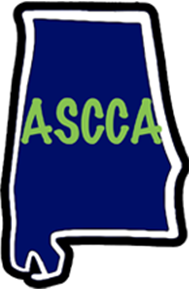Southeastern Diabetes Education Services has a new Outreach and Programs Director, Willie Parkhurst. We asked him a few questions about his personal journey as well as his role here at camp. Here’s what he had to say:
What’s your name and age and where are you from?
I am William Parkhurst, I’m 26, and I’m from Florence, Alabama.
What is your role here at Camp Seale Harris and how did you get involved?
I am the Outreach and Programs Director for Southeastern Diabetes Education Services as a whole, but here I am functioning as the operational end of our full-time team. I got involved by coming as a camper, starting in 1992, after my diagnosis in 1991. So, I have been here almost 20 years, minus the last three.
You said you were diagnosed in 1991, how did that effect you and your family?
It was a change. It was something that we didn’t have experience with—no one in our family was diabetic. But it was something that, as a group, we collectively decided we were going to deal with and take head on. We kind of took the challenge and ran with it and adjusted our lifestyle to fit around my diagnosis.
It wasn’t a big change, but our lifestyle needed to be tweaked to make sure we were eating the right things and doing the right things to make sure management was easier.
How did camp Seale-Harris affect you growing up?
It had a great affect. I met some of my best friends here. It also gave me the opportunity to be the normal kid for once. I was in a school where I was the only diabetic, so it was important for me to gain that camaraderie and have those conversations with other kids who were going through the same thing to give me ideas how to deal with things and better manage my life. It had a great effect on me, and I’m really hoping to pass that along to other kids and give them the same experience I had.
What are some of the biggest challenges you have faced living with diabetes?
I think it’s the inevitable question of the unknown—you have to be prepared for everything. When you go to a restaurant: do you have your meter? Do you have your Insulin? Are you going to get an accurate count of your carbs? All of that stuff is different, but it’s not that difficult. It’s nothing that is really life changing, but it is an adjustment. It is a challenge that you have to deal with. It’s an exciting one, and it’s really given me an opportunity to learn and grow, an opportunity that others might not have.
Why is it important for families affected by diabetes to participate or send their kids to camp (like Seale Harris)?
I think that it is good for both parents and kids. It gives kids the opportunity to just cut loose and be normal and to have the experience that every kid has every day in that they get to do things that everybody else is doing at the same time. So when you are checking your blood sugar, everyone is checking their blood sugar, or when you are having those low-shaking feelings someone else can relate to that and know what you’re going through.
For parents it is sort of a sense of comfort that they can send their kids here knowing full well that their child will be taken care of, from a medical perspective: they’re going to be safe, they’re going to have fun, and it’s going to give their kids the opportunity that cut loose like a normal summer camp.
What is your goal for campers here throughout the week?
Our number one goal is to be safe, number two is to have fun and number three: to learn something. If they can leave here having done all three of those things then we have done our job correctly. It is really important for them to leave knowing something they might not have known coming in.
What is the goal of SDES and how are you accomplishing that goal?
Our goal is to motivate persons living with diabetes through recreational activities and educational activities. That’s kind of the synopsis of our mission statement, but it’s really to make sure we are giving people the avenue to do things that are a little outside the norm, but also to connect with more people living with diabetes and give them the opportunity to learn how to better manage their lifestyle; whether it’s through nutrition, through medicine, through exercise—all of those things, we want to make sure we are giving people the opportunity and we are reaching out to the community we live in. So that’s Alabama, Northern Florida, Lower Mississippi, we want to make sure we are touching as many lives as we can.

Located in Alabama on Lake Martin, Camp ASCCA offers campers a wide variety of traditional recreational and educational activities with a unique design for accessibility.

Sign up for our eNewsletter to keep up with events and happenings at Camp ASCCA!
Notifications